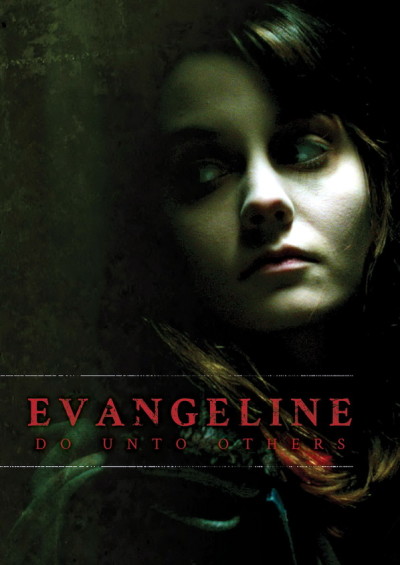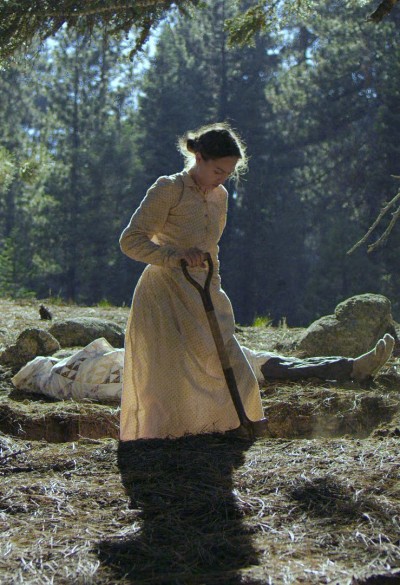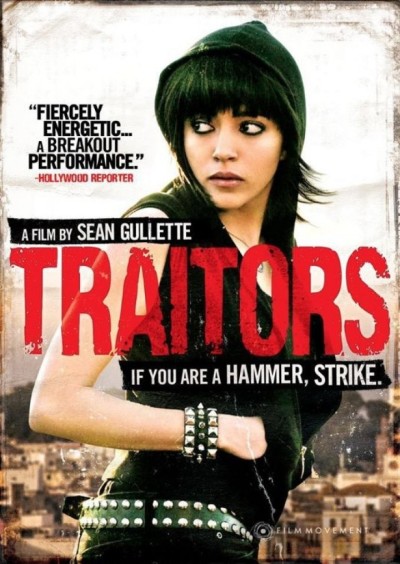★★★½
“Because Cheryl Strayed is a wuss.”
 I am getting an echo of Wild here, even though this actually came out first. Both are based on books by women who decided to deal with their emotional and psychological baggage by striking out on a lone trek through the wilderness. But rather than the relatively civilized world of the Pacific Crest Trail, the heroine here, Robyn Davidson (Wasikowska), heads 1,700 miles across the Australian outback, from Alice Springs to the Indian Ocean coast, accompanied by four camels and a dog. That’s hardcore, being far more of a solo voyage, with long periods where Davidson is entirely on her own – the sole regular companion is photographer Rick Smolan (Driver), who drops in sporadically to document the trek for her sponsor, National Geographic magazine. We first see Davidson as she arrives in Alice Spring, following her as she goes from a naive woman with no experience of the livestock she’ll be managing, to someone who can handle what’s basically a cross between a cow with a bad attitude and a giraffe.
I am getting an echo of Wild here, even though this actually came out first. Both are based on books by women who decided to deal with their emotional and psychological baggage by striking out on a lone trek through the wilderness. But rather than the relatively civilized world of the Pacific Crest Trail, the heroine here, Robyn Davidson (Wasikowska), heads 1,700 miles across the Australian outback, from Alice Springs to the Indian Ocean coast, accompanied by four camels and a dog. That’s hardcore, being far more of a solo voyage, with long periods where Davidson is entirely on her own – the sole regular companion is photographer Rick Smolan (Driver), who drops in sporadically to document the trek for her sponsor, National Geographic magazine. We first see Davidson as she arrives in Alice Spring, following her as she goes from a naive woman with no experience of the livestock she’ll be managing, to someone who can handle what’s basically a cross between a cow with a bad attitude and a giraffe.
As with Strayed, there is trauma in the past which, it’s implied, acts as the trigger for the expedition. In the case of Davidson, it’s more childhood trauma, with a mother who committed suicide, and a father who, unable to cope with the aftermath, shipped Robyn off and had her dog put down. This is revealed in flashbacks, and for my money, is handled rather better than in Wild, in part because it doesn’t dwell on this or make it the focus. Tracks is more about the physical journey, with the spiritual one a side-dish, the reverse of the situation in Wild.
This does require a lot more restraint from Wasikowska, in terms of her performance: she has to do more acting and less Acting, if you see what I mean. I prefer that approach, and the smaller, quieter portrayal we get here only emphasizes the enormity of the landscape through which she is moving. The outback is, in many ways, an unspoken character here, sometimes threatening, sometimes staggeringly alluring, though I’d have been interested to hear some more of the nuts and bolts of the expedition: even prosaic stuff, such as, how the hell does Robyn not get incinerated without a hat? Maybe there’s a documentary film that can fill in these blanks.
There’s not much sense of threat on the human side, with just about everyone who encounters the “camel lady” being generally supportive. The worst issue is when Rick photographs an Aboriginal ceremony he shouldn’t be, leading to some friction with the natives, but it’s hardly the stuff of great drama. It’s more of a character study/travelogue, and from what I’ve seen, Wasikowska – best know as Alice in Tim Burton’s Wonderland – certainly looks the part of Davidson. Yet its calm tranquility ends up more a strength than a weakness, and even when there isn’t much going on, the landscapes still hold your attention with their sparse beauty.
Dir: John Curran
Star: Mia Wasikowska, Adam Driver, Rolley Mintuma







 There are occasionally times where our book reviewer Werner’s “split scale” of grades for both artistic merit and action, would come in handy. This is one of those times. For the action scenes here are as glorious as you would expect from the man behind Dead Fantasy, virtuoso symphonies of exquisite hyper-violence, meted out and absorbed by characters and monsters without fear or bias, in ways limited only – and not very much, at that – by the creator’s imagination. Probably inevitably, this overshadows a fairly perfunctory plot, and characters whose characterization is largely defined by the shade they wear. On a split scale, this would merit five stars for both the quantity and quality of action, but likely three or three and a half for artistic merit.
There are occasionally times where our book reviewer Werner’s “split scale” of grades for both artistic merit and action, would come in handy. This is one of those times. For the action scenes here are as glorious as you would expect from the man behind Dead Fantasy, virtuoso symphonies of exquisite hyper-violence, meted out and absorbed by characters and monsters without fear or bias, in ways limited only – and not very much, at that – by the creator’s imagination. Probably inevitably, this overshadows a fairly perfunctory plot, and characters whose characterization is largely defined by the shade they wear. On a split scale, this would merit five stars for both the quantity and quality of action, but likely three or three and a half for artistic merit.





